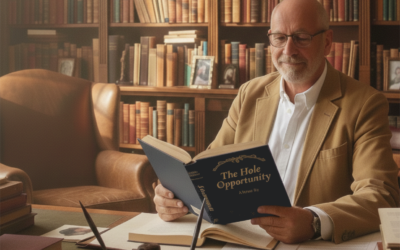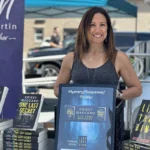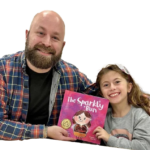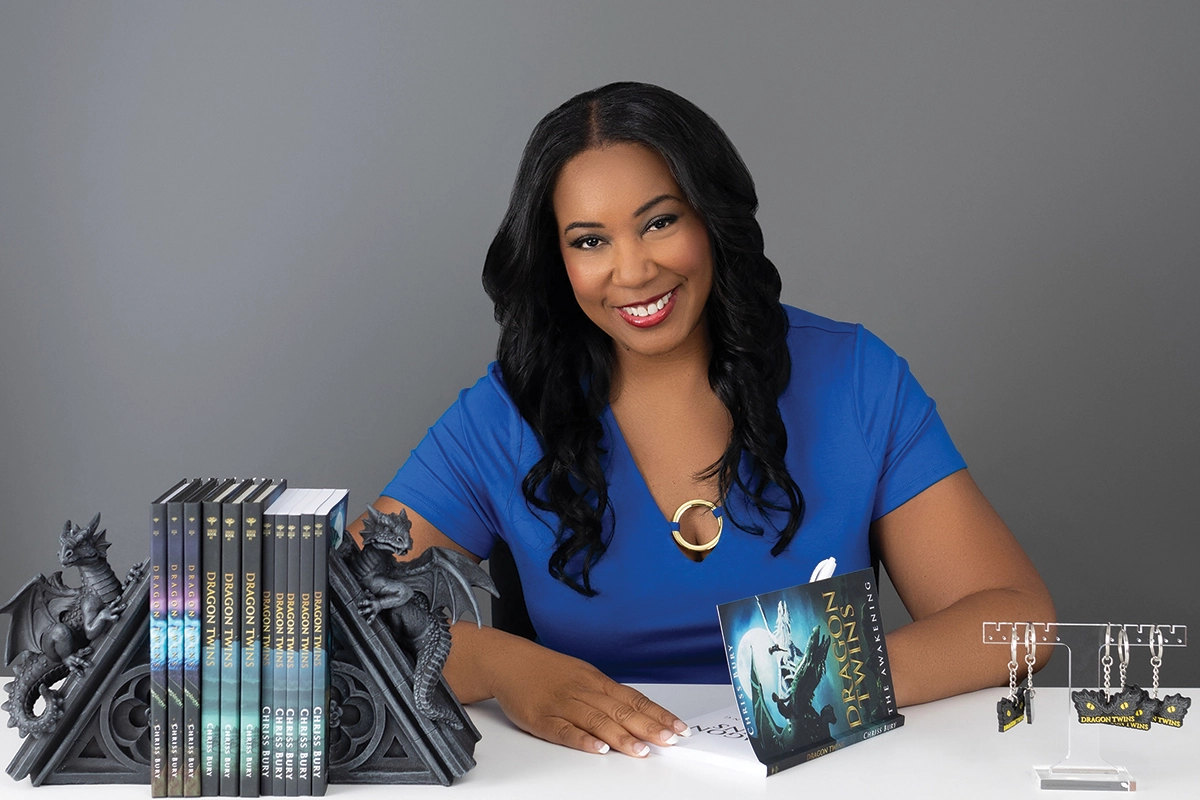Tim Bowler Inspires Readers And Writers Through A Brilliant Career And A Global Mentoring Journey

Photo: Tim Bowler, award-winning author of River Boy and mentor to writers worldwide, photographed during his creative mentoring session.
Award-Winning Novelist Reflects On His Literary Journey
Tim Bowler discusses his celebrated writing career, global mentoring of authors, inspiration for River Boy, creative challenges, cultural storytelling influences, and the joy of empowering aspiring writers worldwide.
Tim Bowler, the extraordinary voice behind some of the most evocative and gripping works in British teenage fiction, has cemented his place as one of the finest authors of our time. With over twenty books to his name and sixteen literary awards, including the prestigious Carnegie Medal for River Boy, Tim’s work transcends genres, introducing readers to powerful storytelling that resonates with emotional depth and psychological intrigue. His ability to blend mystery, philosophy, and humanity earned him accolades such as “the master of the psychological thriller,” and his books continue to connect with audiences worldwide, having been translated into over thirty languages and selling over a million copies.
Here at Mosaic Digest, Tim Bowler’s work holds a special place in the realm of storytelling excellence, inspiring readers and writers alike to delve into the unknown and uncover truths about themselves and the world around them. His novels—such as Starseeker, Dragon’s Rock, and Frozen Fire—showcase an unwavering commitment to asking deep, existential questions while crafting plots that keep readers captivated. Beyond his own writing, Tim’s mentorship of authors from across the globe—spanning generations and cultures—further reflects his devotion to empowering others to find their creative voices and tell their stories.
Tim Bowler is a literary luminary whose compelling novels and mentorship efforts inspire countless readers and writers worldwide.
In this interview, we delve into Tim’s unparalleled literary journey, his reflections on life-changing milestones, and the rewarding shift from author to mentor. His remarkable ability to inspire audiences as both a storyteller and a guide shines through every word, leaving us in awe not just of his boundless imagination, but also his profound kindness and humility. At Mosaic Digest, celebrating creative ingenuity is central to our mission, and Tim Bowler epitomizes the enduring power of art to touch lives, transcend boundaries, and spark the imagination.
“River Boy winning the Carnegie Medal in 1998 was certainly a pivotal moment.” – Tim Bowler
You’ve had an extraordinary writing career, with more than 20 books to your name, including the award-winning River Boy. Looking back, is there a moment or book that stands out as the most defining point in your career—and why?
River Boy winning the Carnegie Medal in 1998 was certainly a pivotal moment. It was my third novel and although my first two books, Midget and Dragon’s Rock, had been well received, I wasn’t sure that a mystical story about a young girl trying to cope with the oncoming death of her grandfather would garner much enthusiasm from readers, booksellers or critics. It was nice to be proved wrong! Sales of River Boy went through the roof and it went on to become one of my most popular titles, both in the UK and abroad. It also refocused reader attention on my earlier books and those that were to follow. But the Carnegie Medal win was defining in another sense too: it gave me a shot of self-confidence; and that, as most writers will tell you, riddled as we often are with self-doubts, is a rare and precious thing.
After turning 70, you chose to dedicate your time to mentoring aspiring writers around the world—ranging from children as young as six to adults in their eighties. What inspired this transition?
I was in my twenties and pushing to finish my first novel. I had to fit this around the various jobs I took on to earn a living, so I’d get up at three in the morning, grit away at the novel for a few hours, then go out to work. I was struggling with the writing, however, and felt I needed some guidance. A friend mentioned a retired writer in his late sixties who offered tutorials to aspiring authors. These were pre-internet days so writers would post him their extract, he’d speak his suggestions into an old-fashioned audio cassette, and send it back in a jiffy bag. I found it incredibly useful and although I didn’t work with him for long, I decided that if I ever got anywhere in writing, I’d offer to help others in like manner when I reached a similar age – so here I am.
“They’re creatively fearless. They’re like small gods who haven’t yet realised they possess superpowers.” – Tim Bowler
You now tutor writers from across the globe via Zoom, making your work more varied than ever. How has connecting with such a wide range of voices and cultures influenced your perspective on storytelling?
It has broadened it enormously. I have always enjoyed reading literature from around the world, usually in translation, but working directly with storytellers from other countries and cultures has been liberating for me. Every author, including those from very similar backgrounds, has his or her unique writing voice, and twenty such authors given an identical writing prompt will usually produce twenty utterly different stories. But factor in cultural, ethnic, spiritual and national differences as well and the stories become even more richly varied. Authors from China, Russia, Kuwait or wherever will make references to concepts that are entirely new to me. I marvel not only at this but at the fact that many of these authors are writing out of their mother tongue into near-perfect English. I don’t think they have any idea just how much I learn from the experience of mentoring them or how much they inspire me.
When mentoring younger writers, particularly those of school age, what recurring strengths—or challenges—do you notice? And how do you guide them while preserving their unique voice?
Tutoring young writers is a joy. They’re embarking on a creative arc which I hope will burn brightly for the rest of their lives and I’m in the privileged position of being asked to help them. But the truth is, they don’t need much help. They just need to be unleashed. They’re creatively fearless. They’re like small gods who haven’t yet realised they possess superpowers. That’s where I come in: showing them how good they are, how great they can be. It’s a different dynamic teaching children, especially the very young ones. With adults I’m just me but to the kids (their parents tell me) I’m like a cross between an elderly sage and a handy extra grandfather. Whatever I am to them, however, to me they’re all miracles, and whether they’re writing about unicorns or saving the rainforest, they fill me with hope for the future of our world.
As someone who’s spent decades writing fiction and is now deeply involved in editorial coaching, do you find that helping others refine their work has reshaped how you think about your own writing?
Yes, it has. I love editing manuscripts, not to impose my opinions on another author’s work, God forbid, but simply to suggest improvements. Proofreading on its own would frustrate me. I would find it hard to correct all the mistakes in a text but not be empowered to recommend stylistic improvements. There is indeed a coaching aspect to this, as you rightly mention, and that’s why I offer authors a joint copy and line edit. That covers the correction of mistakes but also allows my pedagogic side to express itself and hopefully help the author to look at the way he or she is using language. I also offer general manuscript critiques and both these editorial processes impact my own writing. By analysing so closely the writings of others, seeing what works and what doesn’t, suggesting changes, pondering solutions, I realise that in a subtle way I’m coaching myself too.
With such a rich body of work and now this deeply fulfilling mentoring journey, what do you hope your literary and creative legacy will be—for both your readers and the writers you’ve helped along the way?
I never think about a legacy. I prefer to focus on being useful now. My aim, if this doesn’t sound pretentious, is just to give good service. For me, that involves connecting with people and sharing a (hopefully wholesome) portion of myself with them. My books were one way in which I did that and I still receive lovely emails from readers, so that makes me feel I haven’t written in vain. Mentoring and editing are other ways to connect and share and give something of myself. I wasn’t sure anybody would be interested when I first offered my services two years ago but within six months I was crammed and now I’ve never been busier, or more professionally fulfilled. So I’m not sure about a legacy, but if anything I have ever written, said or done has left a warmth in someone’s heart, I’ll settle for that.
Editor’s Note
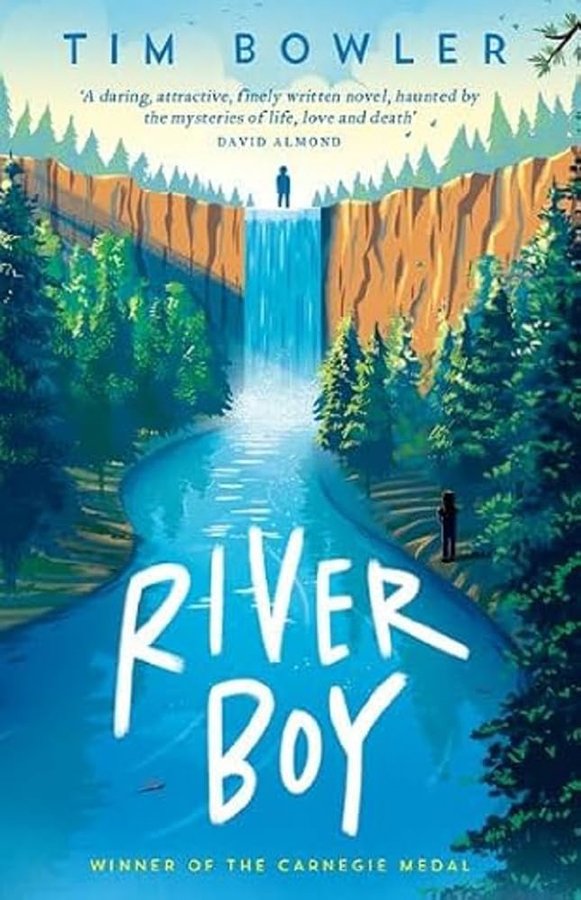
River Boy is a beautifully written and deeply moving novel that touches the heart. Tim Bowler masterfully weaves a story of love, loss, and self-discovery as Jess navigates her bond with her dying grandfather and the enigmatic world surrounding his final painting.


